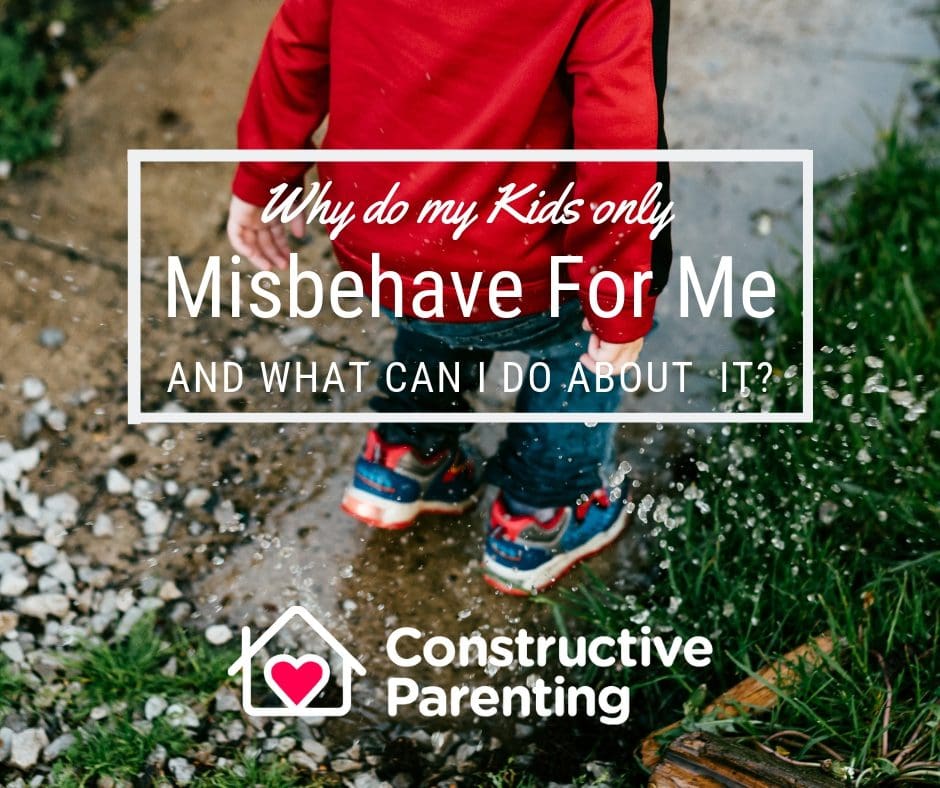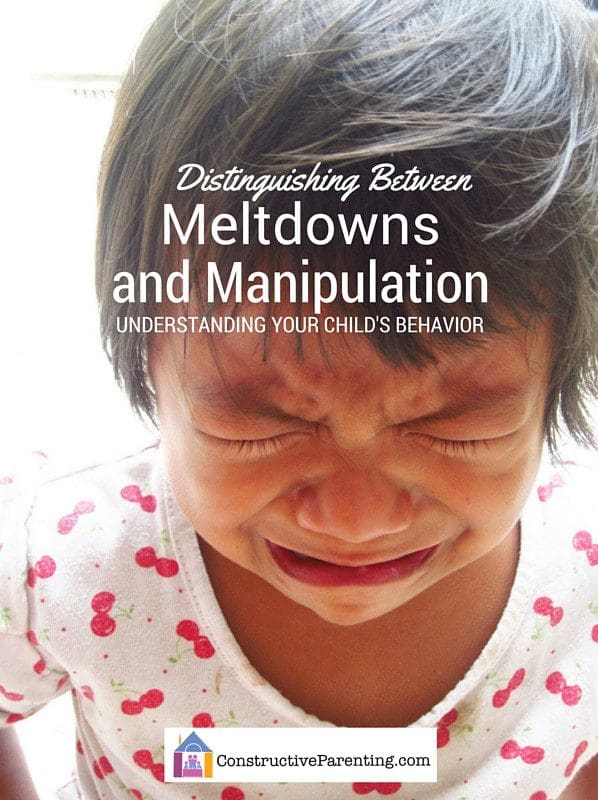Why do My Kids Only Misbehave for Me and What Can I do About It?

If you have been asking yourself this question you are not alone. Many parents believe that if a child gets good conduct reports at school or with a coach it means he knows how to behave, and he is just choosing to misbehave at home. This kind of behavior pattern can really take a toll on your relationship. Parents often feel hurt that their children treat others with respect all day long only to lash out at them as soon as they walk in the door. In my experience, I have found that there are three main reasons children save their disrespect for home. The good news is that there are some simple steps you can take to help change this frustrating dynamic.
Problem 1: Your child is exhausted from the effort it takes to behave in school all day long.
Sitting in a classroom for multiple hours a day with little free time for movement is hard. If you have recently sat through an all-day training, it is likely you can relate. The challenge that sitting still creates can be even harder for children who are naturally very active or talkative. Many kids are motivated to stay focused and quiet so that they make their teacher proud. Of course, by the time they get home from school, they may have no energy left to show you the same sweet behavior. If we reframe their afterschool drama from disrespect to exhaustion, it improves our patience as we consider how to support our kids.
What to do about it:
If this is your child, you can start by carving out time after school for him to decompress. Some children respond well to time alone. Others need a hug or a chance to run around outside. Still others might need a snack and quality time with you before starting their afternoon routine of homework and sports. You can also consider simplifying their afterschool activities to see if more downtime improves their behavior.
The next step is to remember not to take their attacks personally and to teach them how to ask for what they need respectfully. Explain that it is not okay to be rude even if it has been a long day. Next, help your child identify other alternatives for releasing all the pressure that has built up. Help your daughter understand that it’s not okay to come in and slam her backpack on the floor and then start yelling at her sister. It is okay to say, “My mind is really tired from concentrating at school all day. I think I need to go jump on the trampoline for a little while.” When kids are taught how to recognize what they need and how to ask for it appropriately, they are gaining a skill that will benefit them for life.
Problem 2: Your child is suppressing negative emotions when they are at school so they don’t get in trouble.
Some children bury their frustrations when stressful things occur in places where they are “expected to behave”. The result is that when these kids experience difficult situations – like getting chosen last for a team, or not being called on to answer a question– they don’t know how to handle their hurt. They may hide their feelings and pretend to be okay in order to stay out of trouble. Then, when they walk through the door into the safety of your home, they release all of the pent-up emotions they have kept hidden all day.
What to do about it:
If this is your child, your goal is to help her learn how to deal with difficult emotions that pop up during the day. Explore with your daughter what goes on at school so she has an opportunity to talk about things that are frustrating. Role plays can help her learn new ways to respond. Teach her how to use “I feel…” statements to let other people know how she feels. Teach her how to breathe mindfully so that when she gets upset, she can calm down and then make a smart choice to help herself feel better.
Also remember that schools may be particularly stressful for introverts. Schools are set up for extroverts to thrive and if your child is more of an introvert, he may come home from school exhausted. It is okay to teach your child that he can advocate for what he needs with his teachers. Introverted kids can learn how to carve out small periods to recharge throughout the school day by asking their teacher to let them eat at a quiet table and to spend recess on their own or with only a few best friends. These kids may also be more sensitive to a busy afterschool schedule filled with lots of group activities and simple changes can be made to give them time to play without the pressure of planned activities.
Problem 3: Your child needs more structure and clear limits at home.
Simply put, there are children who thrive at school because they respond well to structure, routine, and consistency. If you happen to be a carefree parent with very little routine or structure in your parenting style, it can lead to problems when your child craves structure. In fact, you may be a person who loves structure and routine, but if you haven’t prioritized implementing a consistent schedule for your kids, you may find your child is rebelling and misbehaving at home.
What to do about it:
Sit down with your partner and talk about what an ideal schedule would look like. What time would breakfast be? When would everyone leave for the day? Do the same for after school hours. As you look at the schedule you have created consider which times of day are the hardest. Which are the times you dread the most? Now consider how you can make changes to the schedule to help avoid the problems that pop up. Help your kids pick out their clothes the night before and sleep in them if that makes the morning easier. Change bath time to earlier in the day so there is less stress about getting it done quickly. Once you have adjusted the schedule to make sense for your family post it on the wall.
Then consider what rules you need in your family in order to make the day go more smoothly. Focus on about 5 things that are the most important, write them down and post them in the kitchen and other high traffic areas. If you feel stuck coming up with a list, check in with your child’s teacher to find out the rules of the classroom and bring the relevant ones into your home. Discuss consequences and rewards if the rules are/are not followed. Consider using the same system used in your child’s classroom. The consistency will help make the transition from school to home easier. The key is to be very clear about what your expectations are, what will happen if the rules are followed and what will happen if they aren’t.
Children with good coping skills and consistent routines are much more likely to have good behavior at home. If you have already addressed these issues and are still struggling or if your child’s behaviors problems have extended to outside the home it may be time to reach out for support. A child therapist or parenting coach can help you identify a clear path to peace in your home. If you live in Charlotte, you can also click here to sign up for my 6 week parenting class to get more great parenting tools.












hello, I need help with my 8 year old girl. She acts like if shes 20 and so independent and breaks the rules.
If you live in NC and would like to work together, please use the contact me page to set up a time to talk.